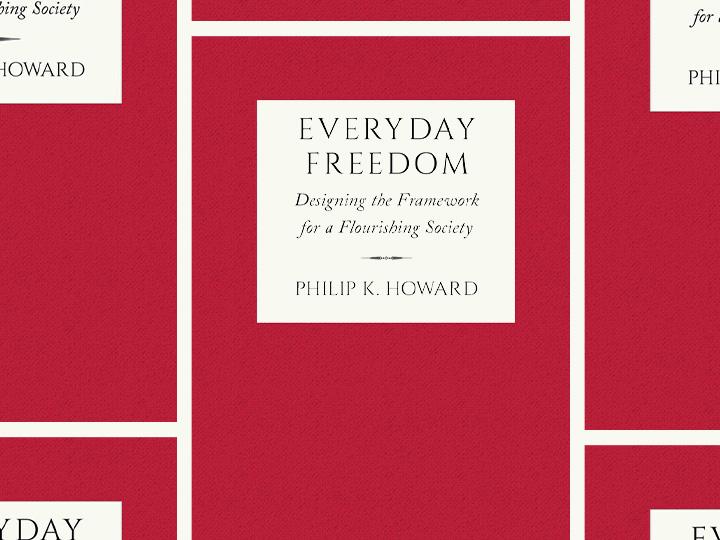In this episode, Juvenile Law Center’s Co-Founder Marsha Levick and Columbia Law Professor Elizabeth Scott discuss the vulnerability of children when they enter the justice system. Marsha and Elizabeth agree that much has improved since “adult time for adult crime” in the 1990s – today youth are recognized as developmentally different from adults, and with care, may be more easily rehabilitated. However, they argue that there are still improvements to be made, and the problems become obvious when you look at statistics comparing the race of children entering the system.
Listen as the experienced child advocate and juvenile law scholar talk about the current issues and explore state policies and practices that have been implemented to help protect children.

Marsha Levick
Marsha Levick, Chief Legal Officer, co-founded the Juvenile Law Center in 1975. Throughout her legal career, she has been an advocate for children’s and women's rights and is a nationally recognized expert in juvenile law.
Marsha oversees Juvenile Law Center’s litigation and appellate docket. She has successfully litigated challenges to unlawful and harmful laws, policies and practices on behalf of children in both the juvenile justice and child welfare systems. She also spearheaded Juvenile Law Center’s litigation arising out of the Luzerne County, Pennsylvania juvenile court judges’ corruption scandal, known as the “kids for cash” scandal, where Juvenile Law Center successfully sought the expungement and vacatur of thousands of juveniles’ cases before the Pennsylvania Supreme Court, and is pursuing civil damages for the children and their families in a federal civil rights class action. Marsha has authored or co-authored numerous appellate and amicus briefs in state and federal appeals courts throughout the country, including many before the US Supreme Court, and has argued before both state and federal appellate courts in Pennsylvania and numerous other jurisdictions. She co-authored the lead child advocates’ amicus briefs in key recent United States Supreme Court cases, including Roper v. Simmons (juvenile death penalty unconstitutional under the Eighth Amendment); Graham v. Florida (life without parole sentences for juveniles convicted of non-homicide offenses unconstitutional under the Eighth Amendment); J.D.B. v North Carolina ( a juvenile’s age is relevant to the Miranda custody analysis under the Fifth Amendment); and Miller v. Alabama (mandatory sentences of life without parole for juveniles convicted of homicide offenses unconstitutional under the Eighth Amendment). Levick is a frequent speaker and lecturer on children’s rights nationwide, and has also co-authored numerous scholarly articles on children’s rights. Juvenile Law Center Juvenile Law Center advocates for rights, dignity, equity and opportunity for youth in the child welfare and justice systems. Founded in 1975, Juvenile Law Center is the first non-profit, public interest law firm for children in the country. Through litigation, appellate advocacy and submission of amicus (friend-of-the-court) briefs, policy reform, public education, training, consulting, and strategic communications, we fight for children who come into contact with the child welfare and justice systems.

Elizabeth S. Scott
Elizabeth S. Scott is the Harold R. Medina Professor of Law and Vice Dean for Curriculum at Columbia Law School. A leading authority on juvenile justice, Elizabeth has written extensively on juvenile crime and delinquency, adolescent decision making, and marriage, divorce, cohabitation, and child custody. In her research, she takes an interdisciplinary approach, applying behavioral economics, social science research, and developmental theory to family/juvenile law and policy issues.
She serves as Chief Reporter for The American Law Institute’s Restatement of the Law, Children and the Law, a continuation of her decades of work to codify and clarify U.S. law and shape the way lawyers, courts, and lawmakers think about children’s rights. Elizabeth is the co-author of Rethinking Juvenile Justice, a collaboration with developmental psychologist Laurence Steinberg. The book offers a developmental framework for juvenile justice policy and received the Social Policy Award for Best Authored Book from the Society for Research on Adolescence in 2010. Their 2003 article, “Less Guilty by Reason of Adolescence: Developmental Immaturity, Diminished Responsibility, and the Juvenile Death Penalty,” argued that adolescent immaturity reduces culpability for criminal defendants; it was cited in the U.S. Supreme Court decision Roper v. Simmons (2005), which that struck down the juvenile death penalty. Her work was also cited in the Court’s later Eighth Amendment opinions striking down harsh sentences for juveniles. Elizabeth was the lead author of the 2015 report The Supreme Court and the Transformation of Juvenile Sentencing, commissioned by the John D. and Catherine T. MacArthur Foundation; she was a longtime member of the Foundation’s Research Network on Adolescent Development and Juvenile Justice, as well as the Research Network on Neuroscience and Criminal Law. Elizabeth joined Columbia Law School in 2006 and served as vice dean from 2007 to 2009. She is currently vice dean for curriculum. Previously, she was a professor at the University of Virginia School of Law, where she was the founder and co-director of the interdisciplinary Center for Children, Families and the Law and served as legal director of the Forensic Psychiatry Clinic a part of the Institute of Law, Psychiatry and Public Policy. Columbia Law School Columbia Law School instills in students a cosmopolitan worldview that prepares them to be exceptionally capable, ethical, and resourceful leaders. Drawing unparalleled strength from the vast interdisciplinary resources of our distinguished university—as well as our New York City location—our students complete their legal training ready to engage the world’s most challenging issues. 8.5.5
For a transcript of the full episode, please contact communications@ali.org.



